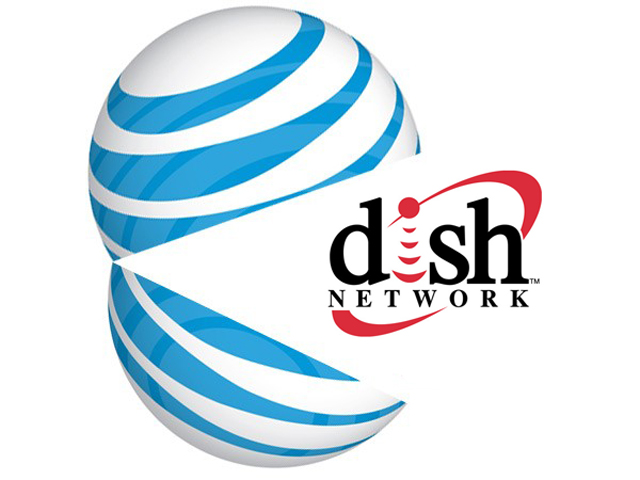
AT&T’s primary motivation to buy T-Mobile USA was to get access to that company’s spectrum, a high-value commodity that makes it possible for customers to make calls and send and receive wireless data. AT&T simply doesn’t have enough 4G spectrum to provide a good experience for future customers, especially if its customer base grows. Chief AT&T rival Verizon Wireless, on the other hand, has much more spectrum available thanks to an enterprising $3.6 billion deal it made with cable companies.
[aditude-amp id="flyingcarpet" targeting='{"env":"staging","page_type":"article","post_id":378725,"post_type":"story","post_chan":"none","tags":null,"ai":false,"category":"none","all_categories":"entrepreneur,media,mobile,","session":"D"}']A Dish Network acquisition, as first written about by Bloomberg, could be the solution to AT&T’s woes. Dish owns lots of wireless spectrum to deliver its television service to customers and it even has talked in the past about partnering with T-Mobile to offer wireless phone service.
Bloomberg’s report suggests AT&T could pay as much to $50 a share for Dish, which would be a 77 percent premium. That would be the biggest acquisition premium in more than a decade. Dish’s stock is currently trading at about $29 a share.
AI Weekly
The must-read newsletter for AI and Big Data industry written by Khari Johnson, Kyle Wiggers, and Seth Colaner.
Included with VentureBeat Insider and VentureBeat VIP memberships.
Other options for AT&T (or its rivals) to get more spectrum could be to purchase regional carriers or mid-size carriers like MetroPCS, Cricket, Leap Wireless, and Clearwire. But Dish would be easier to get regulatory approval from the government versus a carrier, because we all know what happened last time.
Do you think buying Dish would be a good move for AT&T?
VentureBeat's mission is to be a digital town square for technical decision-makers to gain knowledge about transformative enterprise technology and transact. Learn More